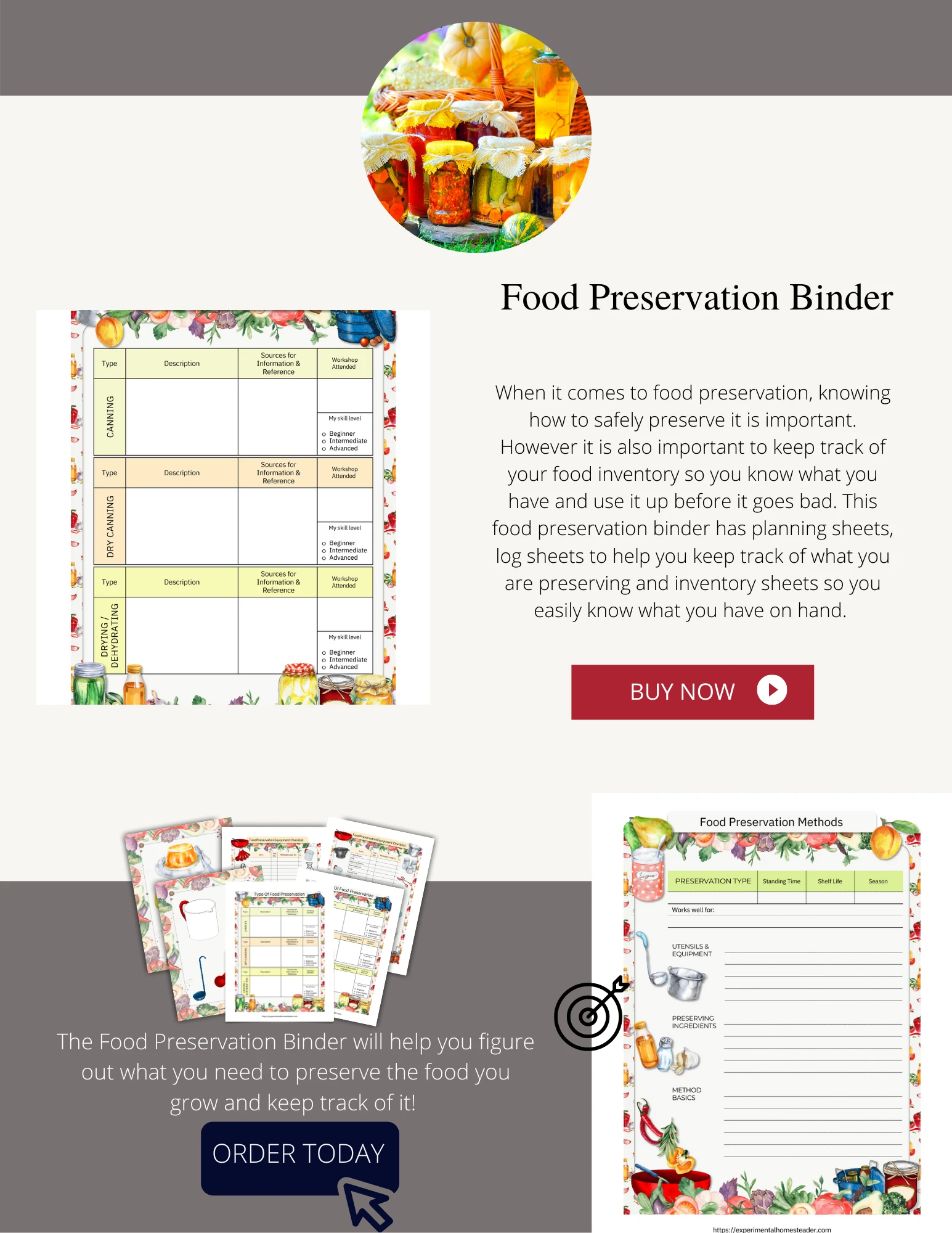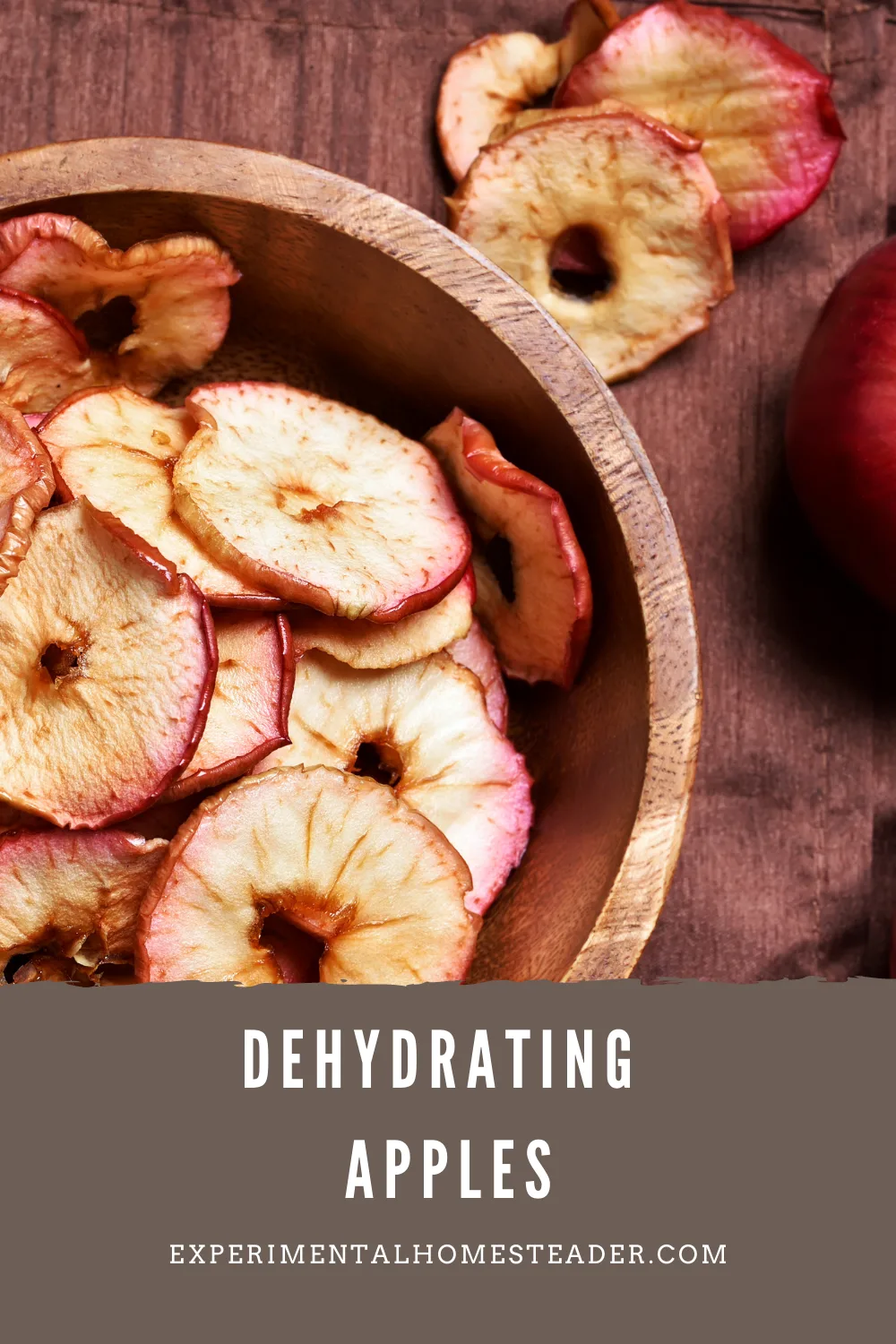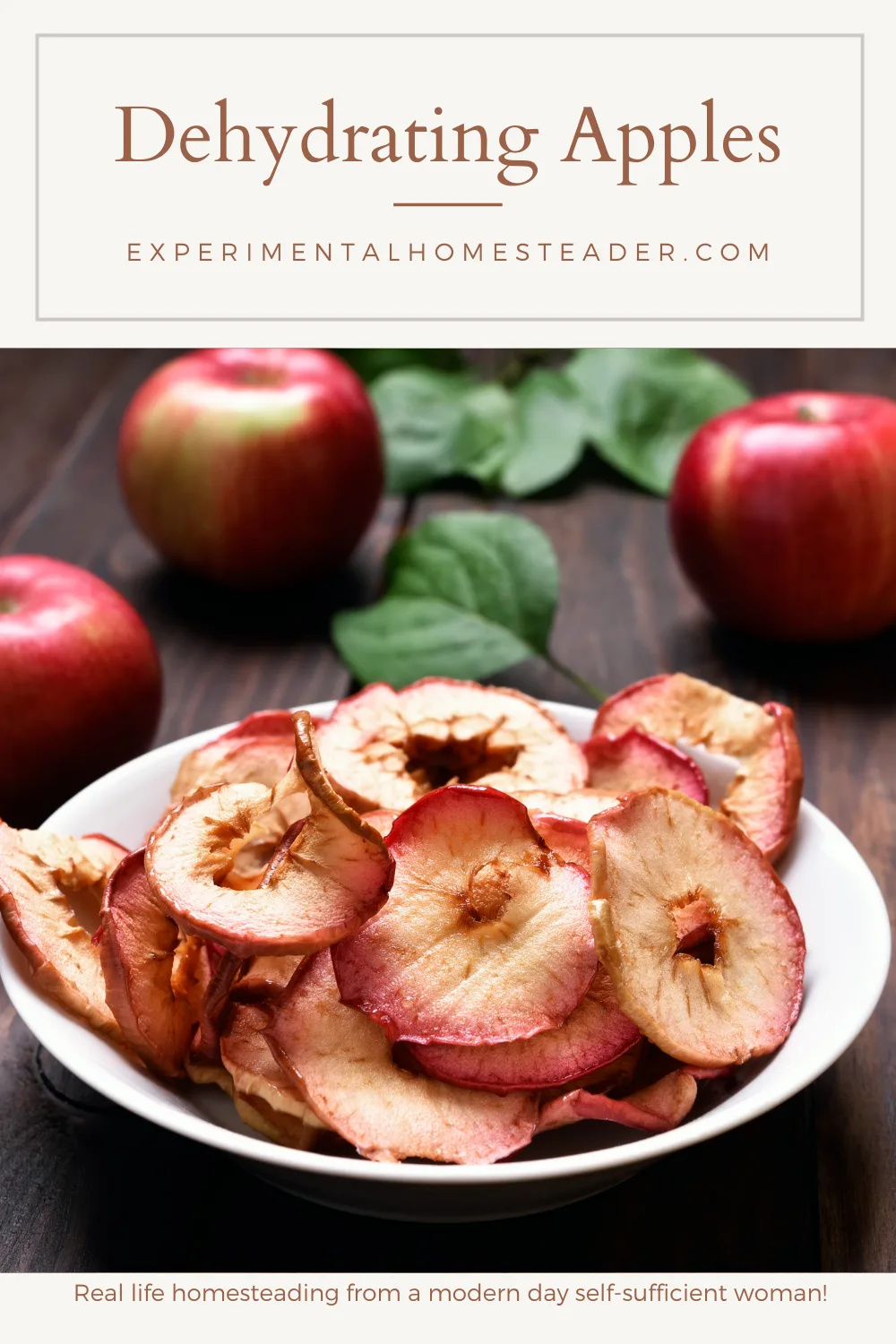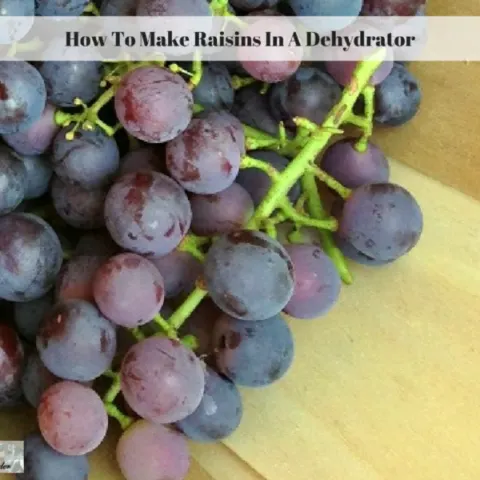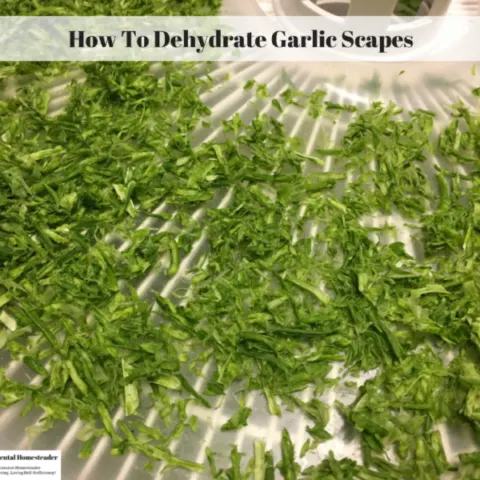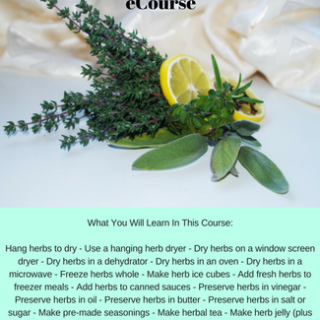Dehydrating apples is one of the best ways to preserve them for long term use.
Apples are a rich source of vitamin C and potassium, and they provide fiber and antioxidants.
There are many healthy benefits that come from eating apples.
One way to consume more apples is to dehydrate them.
Dehydrating your own apples allows you to control the amount of sugar in your snacks.
The end result is a shelf-stable product that can be eaten anytime, anywhere!
What Is Dehydrating And How Does It Help with Storage?
Dehydrating food is a great way to store it for a long time without refrigeration because it effectively removes the moisture from the food making it perfect for storage.
Dehydrating apples is a natural and healthy way to preserve them for long periods of time.
There are two different techniques for dehydrating: drying and freeze drying.
The type of dehydration we are doing is done with warm air that slowly removes the moisture from the fruits or vegetables through evaporation.
It is the easier, cheaper method because all you need is your oven or a food dehydrator.
Why Dehydrating Apples Is A Great Idea For Your Food Preservation Needs
Dehydrating apples is a great way of preserving them for the future, especially if you are not going to be able to make it through all of them before they start to go bad.
Dehydrated apples make a great snack just as they are.
They are good to put in cereal as well.
Dehydrated apples also take up less room than canned apples, plus you can store the dehydrated apple pieces in glass jars in your cabinet or pantry instead of taking up precious refrigerator room.
Dehydrated apples are easy to use and take with you in your lunch box.
Simply rehydrate them in regular water and use them in recipes just like you would fresh apples.
How To Dehydrate Apples
- Wash, peel and core the apples.
- Slice the apples into ¼ inch thick slices.
- Put the apple slices into an citric acid mixture. This helps prevent discoloring and helps preserve the fruit. Citric acid is available in most grocery stores or places where they sell canning or dehydrating supplies.
- Remove the apples from the citric acid mixture and allow to dry slightly.
- Sprinkle cinnamon or other herbs or spices on top of the apples slices if you wish. This is optional.
- Dry at 150 degrees Fahrenheit for 2 to 3 hours. The time varies considerably, so check the apples periodically. When they easily break in half, they are done.
- Turn the dehydrator off.
- Allow the apples to cool.
- Pack into an airtight container if possible.
- If not, put them in a canning jar with oxygen absorbers in a cabinet or into a freezer bag and freeze them.
How To Store Dehydrated Apples
The best way to store dehydrated apples is in a glass jar in a cool, dark area.
I recommend putting a couple oxygen absorbers in the jar because dehydrated food can draw moisture if you live in a humid environment.
Another option is to place the dehydrated apples in a container and place that container in the freezer.
While freezing dehydrated food is not necessary, I do it because I have such a hard time keeping my dehydrated food from drawing moisture due to the amount of humidity that is naturally in my home.
Direct sunlight and high temperatures as well as high humidity can quickly ruin dehydrated food.
You can store the dehydrated apples in mylar bags or even plastic food safe bags if you prefer.
How To Dehydrate Food
How To Make Raisins In A Dehydrator
Learn how to make raisins in a dehydrator. Learning how to make your own raisins from grapes is easy not to mention they are delicious!
How To Dehydrate Garlic Scapes
Garlic scapes are a gourmet seasoning that come on once a year in the spring. Learn another method for garlic scapes storage for year round use.
How To Dehydrate Cherries
Learn how to dehydrate cherries for long term storage or simply for a delicious, healthy fruit snack. It is really easy to dehydrate cherries at home.
Reusable Bakery Trays Make Great Produce Storage Trays
Bakery trays make great reusuable produce storage trays for root cellars or even for storing fruits or vegetables during the food preservation process.
How To Dry And Store Homemade Noodles
Learn how to dry homemade pasta plus the best method for storing homemade noodles so they stay fresh for up to six months!
Food Dehydration Tutorial
In this food dehydration tutorial you will not learn how to use a food dehydrator, but instead you will learn how to get started and why you should do it!
Four Factors That Affect Food Storage
Understanding the four factors that affect food storage is essential for keeping your food safe, especially if you intend to store it long term.
Keeping Dehydrated Food Fresh: A Guide
Master the art of keeping dehydrated food fresh: preserve flavor, extend shelf life, and perfect storage techniques in our ultimate guide.
Canning Broccoli Is No Longer Safe But You Can Still Preserve It
Although canning broccoli was once considered safe, times have changed thus freezing, dehydrating or freee drying broccoli is recommended.
Preserving and Transforming Meals with Eggplant from Food Storage
Get creative in the kitchen with preserved eggplant. Explore the endless possibilities of transforming meals with eggplant from food storage.
Preserving Herbs For Winter Use eCourse
Do you love fresh herbs but wonder if there is an easy way to preserve them for the winter?
Do you seek other ways to use herbs other than just as a seasoning on food?
There are so many ways to preserve herbs for winter use – from various methods of drying them to freezing them, but it doesn’t end there.
Some of the best ways to preserve herbs in right in the foods you would normally incorporate herbs into – pre-made seasonings, teas, butter or oil.
Then this is the course for you!
What You Will Learn In This Course:
Hang herbs to dry
Use a hanging herb dryer
Dry herbs on a window screen dryer
Dry herbs in a dehydrator
Dry herbs in an oven
Dry herbs in a microwave
Freeze herbs whole
Make herb ice cubes
Add fresh herbs to freezer meals
Add herbs to canned sauces
Preserve herbs in vinegar
Preserve herbs in oil
Preserve herbs in butter
Preserve herbs in salt or sugar
Make pre-made seasonings
Make herbal tea
Make herb jelly (plus tips on how to use these)



